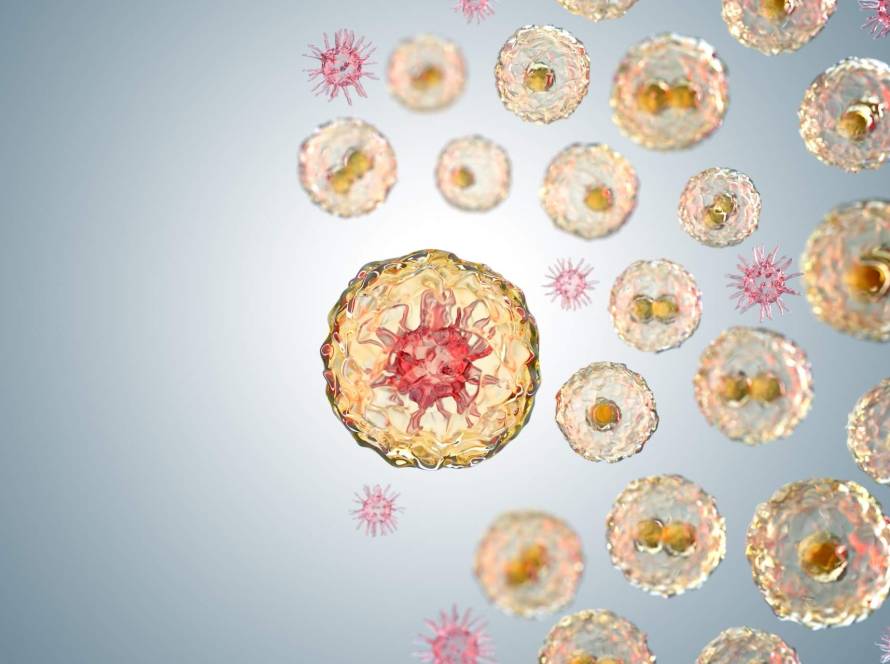About 25 million people worldwide live with dementia and this number doubles every 20 years. Building cognitive reserve has become a vital question as we tackle this growing health challenge. Our brain’s cognitive reserve shows its remarkable power to adapt and work despite age-related changes or disease. This provides a strong foundation against cognitive decline.
This piece explores proven ways how to improve cognitive reserve at any age. From continuous learning to physical activity, these practical steps help protect our brain’s health.
How to build cognitive reserve naturally
We can increase cognitive reserve by adopting lifestyle habits that challenge and protect the brain over time. Engaging in lifelong learning, reading and acquiring new skills, like a language or musical instrument, stimulates neural connections and builds mental resilience.
Regular physical exercise, especially aerobic activity, improves blood flow and supports neuroplasticity. Social interaction, a healthy diet rich in antioxidants and omega 3s, quality sleep and stress management through mindfulness or meditation also play key roles. Combining these strategies helps the brain adapt more effectively to aging and may delay the onset of cognitive decline.
What is cognitive reserve and why it matters
Cognitive reserve shows the brain’s amazing ability to adapt and work well despite age-related changes or pathological damage. Scientists discovered this concept after they observed people who kept normal cognitive function during their lives yet showed significant Alzheimer’s pathology in post-mortem examination.
Cognitive reserve vs brain reserve vs brain maintenance
These three different but related concepts explain why people’s cognitive aging varies.
- Brain reserve points to structural features like brain size, neuron count or synaptic density, the “hardware” of resilience;
- Cognitive reserve reflects the brain’s functional adaptability, the “software” that enables better performance than expected given the brain changes;
- Brain maintenance describes how neural resources stay preserved over time, which slows down age-related brain deterioration. These mechanisms are the foundations of cognitive resilience throughout life.
How cognitive reserve helps delay symptoms of brain aging
Neural reserve and neural compensation are the two main mechanisms of cognitive reserve. Neural reserve makes existing brain networks more efficient and resistant to deterioration. Neural compensation lets the brain use alternative networks to complete tasks when primary regions become impaired. These adaptations explain why higher cognitive reserve helps delay the clinical signs of neurodegenerative changes. Studies reveal that people with higher reserve experience later symptom onset, though they may decline faster once symptoms appear.
Why some people show fewer symptoms despite brain pathology
The striking difference between brain pathology and clinical symptoms proves cognitive reserve’s power37. People who experience lifelong cognitive stimulation through education, complex jobs and enriching activities can function normally despite substantial brain damage6. Higher reserve creates better neural efficiency, capacity and flexibility38. Better connectivity patterns in specific brain regions, especially in the frontal lobe and posterior cingulate gyrus, link to improved cognitive performance despite pathological burden4. Scientists now focus on measuring cognitive reserve to predict cognitive trajectories and develop ways to enhance this protective resource.
How cognitive reserve is built over a lifetime
Our brain’s cognitive reserve starts building early in life and keeps growing through adulthood. Many factors help protect our brain’s capacity. Research shows that certain lifestyle choices throughout life boost our brain’s resilience against age-related decline by a lot.
Role of education and occupational complexity
Education plays a powerful role in building cognitive reserve. Research shows that each extra year of education cuts dementia risk by about 7%. Higher education helps develop neural networks and creates strong foundations for lifelong brain health. These benefits stay with us whatever job we do.
Jobs that need complex thinking, especially those that need us to work with people and data, build cognitive reserve further. A study that followed people from age 11 to 70 found something interesting. People who worked in more challenging jobs showed better thinking skills later in life. This happened even when researchers considered how smart they were as kids. Complex work environments make our brain adapt constantly. Yet some studies suggest that education still predicts cognitive resilience better.
Impact of social and leisure activities
Brain-challenging leisure activities are a great way to build reserve. Reading and other intellectual activities can lower memory impairment risk by up to 74%, according to studies. Doing puzzles relates to lower chances of mild cognitive decline.
Social connections strengthen cognitive reserve too. Research shows people with varied social networks who interact often have stronger cognitive resilience. Activities that combine social and thinking elements work best, like group games, volunteering or creative hobbies.
Influence of early-life and mid-life experiences
The timing of brain-building activities matters by a lot. Early education builds the foundation. Mid-life work and hobbies help maintain and grow this reserve. Long-term studies found interesting results. People with the highest cognitive reserve scores in their early 50s showed the best thinking skills at age 69.
Studies show that building cognitive reserve works even if we start later in life. We can always strengthen our brain’s resilience by staying mentally active.
Scientific strategies to increase cognitive reserve
Research shows several practical ways to build cognitive reserve throughout our life. Our brain can create new neural connections and reorganize itself at any age. This remarkable feature, called neuroplasticity, makes these strategies work.
Lifelong learning and cognitive training
Learning new skills strengthens our cognitive reserve and promotes brain plasticity. Studies reveal that people who engage in various leisure activities over many years and have higher education levels show improved cognitive abilities.
Physical activity and aerobic exercise
Regular aerobic exercise builds cognitive reserve through three key ways: it creates new neurons, increases blood flow to the brain and forms new connections. Studies show that regular exercise during midlife can decrease the risk of developing Alzheimer’s disease by about 50%. Exercise helps people of all ages think better, with older adults seeing the biggest improvements.
Social engagement and meaningful relationships
Strong social connections protect our brain from cognitive decline. People who stay socially active score higher on cognitive function tests than those who don’t. Senior centers help both men and women stay sharp, while women get extra cognitive benefits from religious group activities. Young adults with good social support show better planning skills and verbal fluency.
Dietary patterns that support brain health
The Mediterranean and MIND diets help build cognitive reserve by reducing inflammation and oxidative stress. The MIND diet focuses on:
- Green leafy vegetables;
- Berries:
- Nuts;
- Whole grains:
- Fish;
- Olive oil as our main fat source.
Sleep quality and circadian rhythm alignment
Good sleep lets our brain clear toxins and strengthen memories. Our cognitive reserve helps prevent sleep problems, while poor sleep can lead to cognitive decline. When our body clock gets disrupted, we score lower on cognitive tests and face more health issues. Try to sleep 7-8 hours each night on a regular schedule.
Stress reduction and emotional regulation
Long-term stress hurts our prefrontal cortex and increases amygdala activity, which affects our decision-making and memory. We can fight stress hormones and inflammation through mindfulness, meditation and deep breathing. People with higher education levels and active leisure lives handle emotions better, especially when it comes to reframing negative situations.
Supplements and emerging interventions
Research shows promising supplements that boost cognitive reserve development beyond lifestyle changes. Scientists have discovered specific compounds that can improve brain structure and function through different mechanisms.
Omega-3 fatty acids and phospholipids
Brain lipids contain about 35% omega-3 polyunsaturated fatty acids and DHA makes up nearly 40% of total brain fatty acids. These essential fats boost brain function in multiple ways. They improve membrane fluidity, boost neurotransmitter release and protect neurons from oxidative stress.
Research proves omega-3 supplements increase brain blood flow during mental tasks. People with higher omega-3 index have larger hippocampal volumes, a brain structure that plays a vital role in learning and memory. Those with higher RBC omega-3 levels show better abstract reasoning skills.
Phosphatidylserine helps brain cells communicate and naturally drops with age. Research suggests its supplements can boost memory, reduce stress and help us sleep better.
Citicoline and uridine monophosphate
Citicoline helps create acetylcholine, a vital neurotransmitter for learning and memory, and supports phospholipid formation in nerve cell membranes. The body breaks down citicoline into choline and cytidine and cytidine changes to uridine in humans.
Clinical studies show citicoline helps older adults brains absorb more choline, which might reverse early cognitive aging. Elderly subjects who took 500-1000mg daily for four weeks remembered more words and objects.
Uridine monophosphate works well with omega-3s. It increases brain phosphatide levels and synaptic proteins while helping form dendritic spines. This combination helps create synaptic membranes and reduces synaptic dysfunction.
Bacopa monnieri and lion’s mane mushroom
Bacopa monnieri, an Ayurvedic herb, improves cognition by balancing neurotransmitters and modulating the cholinergic system. Studies show it helps with verbal learning, memory and information processing.
Lion’s mane mushroom contains compounds called hericenones and erinacines that boost nerve growth factor (NGF) production. Seniors with mild cognitive impairment who took lion’s mane performed better on cognitive tests than those who took placebo. This mushroom might help slow down age-related cognitive decline through its neuroprotective properties.
Our brain’s cognitive reserve builds up over our lifetime. It’s not something we can develop overnight. This piece explores how this amazing brain capacity grows from early education through work challenges and free-time activities. Science shows that cognitive reserve acts as a shield against brain decline. People can keep their mental sharpness even when their brain shows signs of aging.


